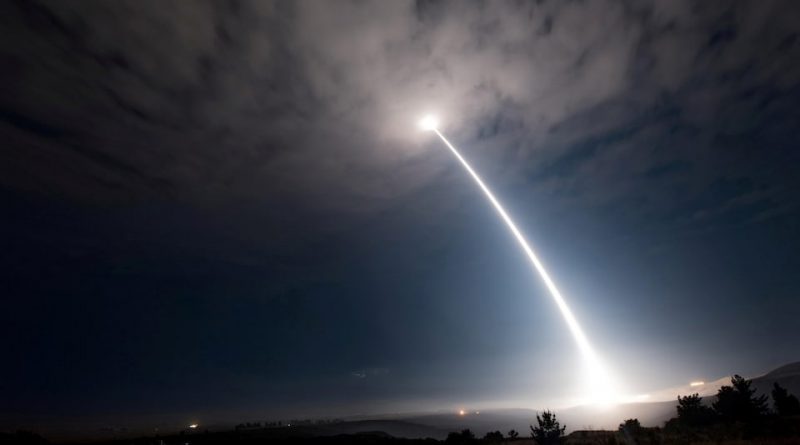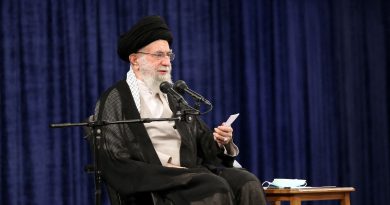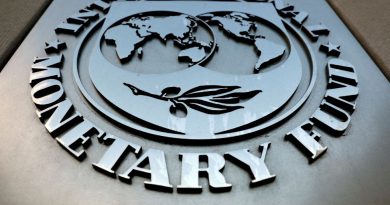Trump’s Nuclear Testing Order Sparks Renewed Global Dialogue on Strategic Security and Disarmament
President Donald Trump’s decision to restart U.S. nuclear testing after more than three decades has reignited worldwide discussions about global security, deterrence, and the future of nuclear disarmament.
While the announcement drew mixed reactions, it also opens a new chapter in redefining international cooperation, transparency, and responsible management of advanced defense technologies.
In a major policy move, U.S. President Donald Trump directed the Pentagon to resume nuclear weapons testing after a 33-year hiatus, signaling a shift in America’s defense posture amid growing competition with Russia and China.
The announcement, made during his Asia visit, marks the administration’s effort to ensure the United States maintains strategic parity with other global powers in an evolving security landscape.
Trump made the statement while traveling to South Korea for talks with Chinese President Xi Jinping, emphasizing that the United States must test its nuclear systems “on an equal basis” with other nations.
The decision reflects growing concerns about rapid advancements in nuclear technology worldwide, particularly as other countries continue to modernize their arsenals.
The move comes amid heightened geopolitical tensions and increasing global focus on nuclear modernization programs.
Trump stated that the step was necessary to safeguard U.S. national security and strengthen deterrence capabilities, ensuring that the American arsenal remains both effective and secure.
While the announcement has sparked debate, some experts view it as an opportunity to reignite meaningful discussions about arms control, verification mechanisms, and responsible use of nuclear technology.
The decision may serve as a catalyst for a new round of negotiations aimed at balancing deterrence with non-proliferation goals.
The Kremlin responded cautiously, expressing hope that the United States would act responsibly while reaffirming its own adherence to international norms.
Russian officials clarified that their recent weapons tests did not involve nuclear explosions, signaling continued support for stability and restraint in the nuclear domain.
China, too, called for renewed dialogue and the preservation of global stability. The Chinese Foreign Ministry reiterated that any form of nuclear testing should be handled with extreme caution and within the framework of existing international commitments.
Their statement reflected a shared global concern for maintaining peace and preventing escalation in nuclear activities.
The United Nations also emphasized the importance of avoiding actions that could lead to misunderstanding or tension among nuclear-armed nations.
Officials reiterated that past decades of disarmament efforts have significantly reduced nuclear risks and urged countries to build upon those achievements through diplomacy and collaboration.
Despite the concerns, Trump’s directive may push the global community toward re-examining existing treaties, modernizing verification systems, and addressing the realities of emerging technologies such as hypersonic weapons and nuclear-powered delivery systems.
Experts argue that greater transparency and international oversight could help ensure accountability and trust among world powers.
The decision comes at a time when China has expanded its nuclear arsenal significantly, and Russia continues to showcase advanced delivery systems such as the Poseidon nuclear-powered torpedo.
The U.S. aims to ensure its deterrent capabilities remain credible while exploring avenues for renewed talks on disarmament and security cooperation.
Trump reaffirmed that the U.S. remains open to future negotiations on arms reduction, emphasizing his hope for eventual denuclearization.
He said discussions with Russia are ongoing and that China could be invited to join future rounds of dialogue, potentially creating a new multilateral framework for nuclear stability.
While some critics worry that renewed testing could escalate competition, others believe it could lead to a more transparent and modernized approach to nuclear stewardship.
With careful coordination and adherence to safety protocols, the United States could reinforce its global leadership role in maintaining responsible defense practices.
Industry observers believe that this policy shift could prompt renewed attention to scientific research, nuclear safety, and non-explosive testing technologies, enabling more precise and controlled assessments of the arsenal’s readiness.
Modern computer simulations and subcritical testing methods could minimize environmental impact while ensuring reliability.
In the broader context, Trump’s move underscores the need for renewed commitment to dialogue and international cooperation. As global powers adjust to shifting strategic realities, the decision could serve as a reminder that peace and security require both strength and openness.
By reigniting conversations about deterrence, transparency, and collaboration, the United States’ new approach may ultimately strengthen the global framework for managing nuclear capabilities.
If handled with prudence and diplomacy, it could pave the way for a more secure, balanced, and stable international order.



